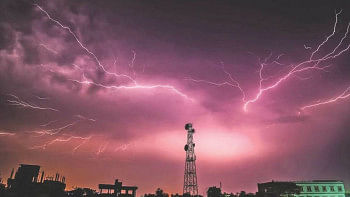GSMA calls for lower 4G spectrum prices in Bangladesh
A global association of mobile operators has called for lower 4G licensing fees ahead of the next round of auctions, due to be held in a couple of months' time, to reflect the local market realities and facilitate the Digital Bangladesh goals.
The country's mobile operators are already burdened with some of the highest taxes in the world and the high fees would make it more challenging for them to roll out the new technology, said the Global System for Mobile Association in a press statement recently.
In that case, the government move would be counterproductive: the high prices would impose a significant burden in meeting the 'Digital Bangladesh' objectives and impact the future of mobile broadband services in the country.
The Bangladesh Telecommunication Regulatory Commission has sent its proposal to the government on the 4G spectrum prices last month.
For each megahertz, it recommended $35 million on the 1,800 band, $30 million on the 900 band and $27 million on the 2,100 band. The BTRC also plans to slap on an additional $7-$8 million for per MHz of technology neutrality on the existing spectrum on the 1,800 and 900 bands.
It also proposed 15 percent revenue sharing with the operators from 4G services along with Tk 7.5 crore as annual fees. The licence tenure will be 15 years.
Mobile operators currently share 5.5 percent of their gross revenue from 2G and 3G services with the BTRC, in addition to 1 percent as contribution to the social obligation fund.
The London-based association, which represents the interests of about 800 mobile operators across the globe, also called upon the government to reduce the burden of levies to facilitate the deployment of affordable voice and data services for the people of Bangladesh.
Spectrum's greatest value is realised when used by mobile technology and devices to provide social and economic opportunity for all of Bangladesh's citizens, it said, while citing the mobile industry's contribution to the GDP in 2015 to further the point.
In 2015, the mobile industry contributed 6.2 percent to Bangladesh's GDP.
Besides, new research links high spectrum prices with lower quality mobile services, it said.
“In short, mobile operators have less capital left for new networks and services,” said Brett Tarnutzer, head of spectrum at GSMA.
The proposal of imposing incremental fees on top of the already-high fees risks deterring operators from acquiring much-needed spectrum, he said, while citing India, Ghana, Mozambique and Senegal as recent examples of countries where 4G spectrum has gone unsold.
“This would be extremely damaging not only for the Bangladesh mobile industry but also for the country's economy overall,” he added. Last month, the mobile operators wrote to Tarana Halim, state minister for telecom to sound out their opposition the BTRC's proposal to hike the spectrum prices and revenue sharing percentage for 4G services.

 For all latest news, follow The Daily Star's Google News channel.
For all latest news, follow The Daily Star's Google News channel. 



Comments